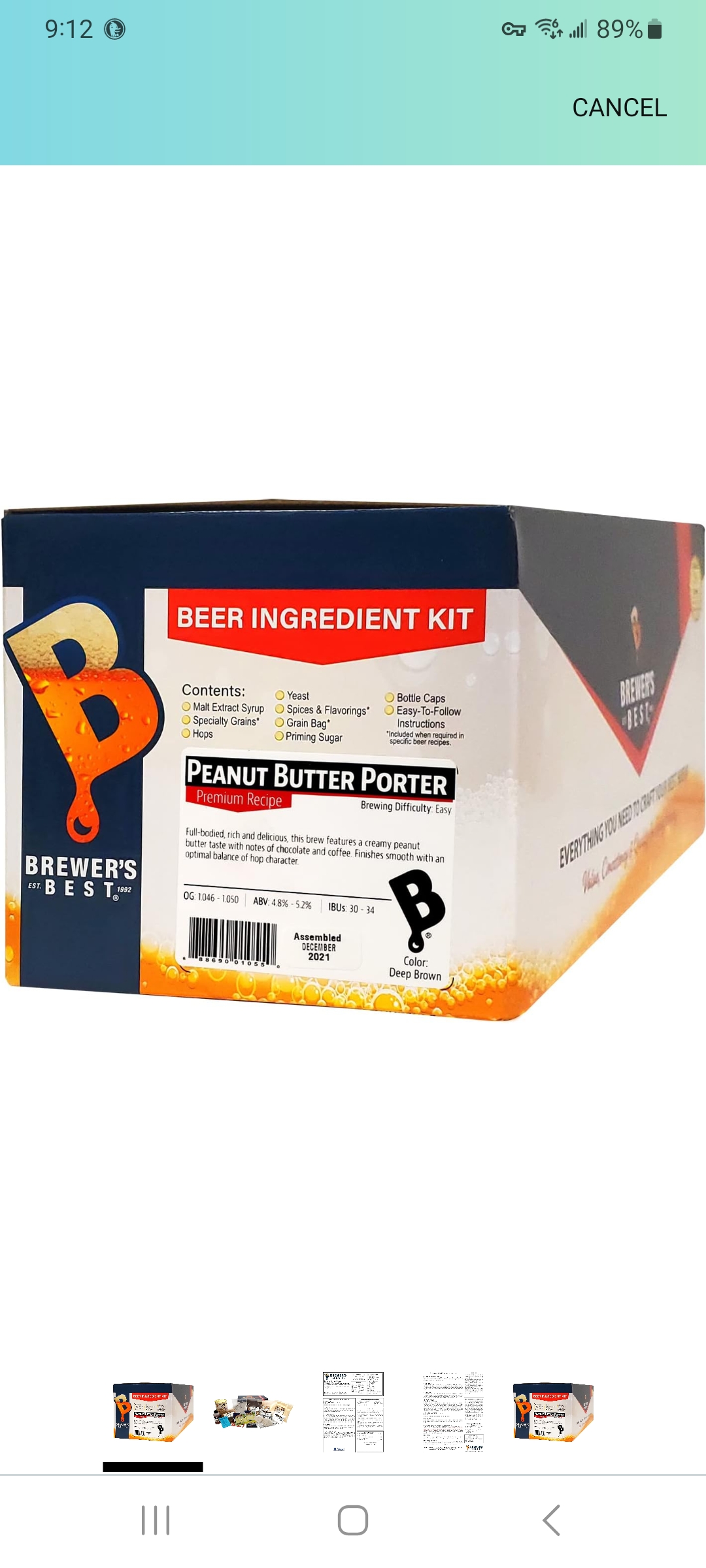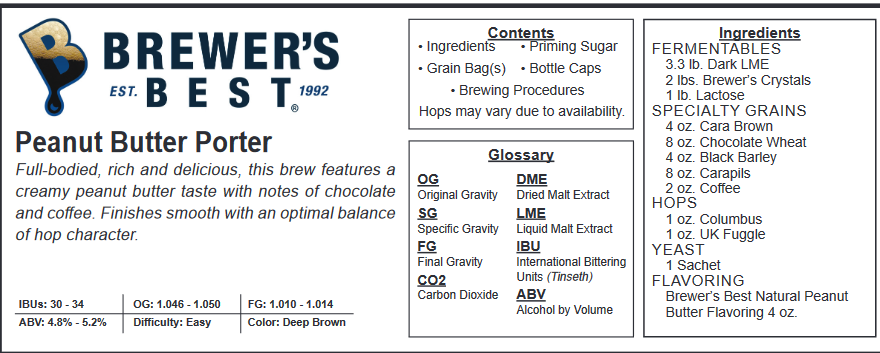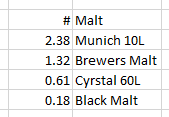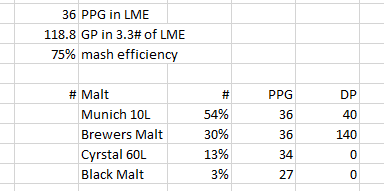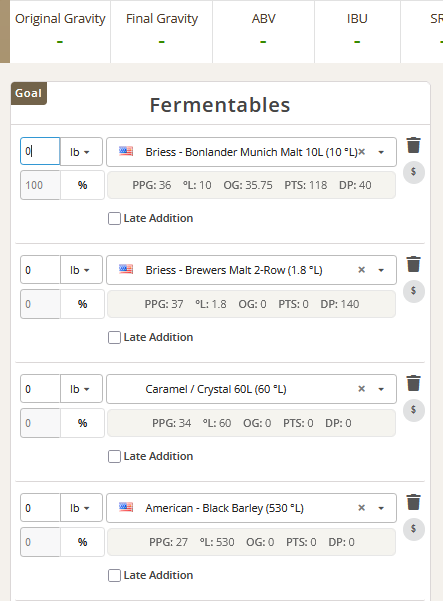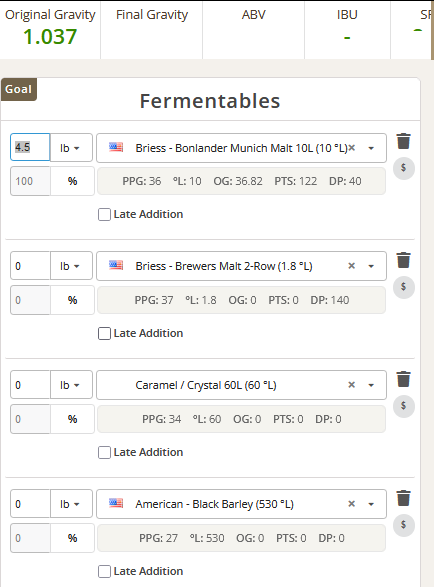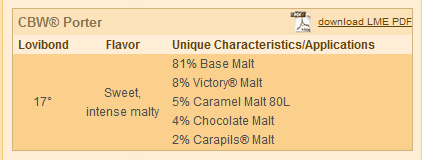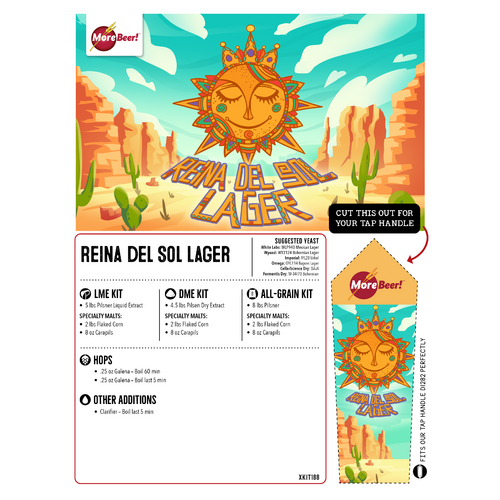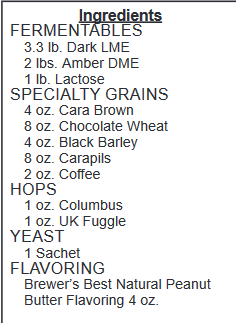impatient one
Active Member
I want to duplicate a kit recipe. It called for 6.6 lbs dark lme. I want to convert the lme to grain but don't know what type of grain to use. I also don't understand the conversion part of the formula. I found that on brewers friend. I'd rather use all grain. Is it cost effective to do this, or am I just crazy spinning my wheels? I'm not above researching, but I've tried for 2 days with no real answer. I'm trying to reproduce a porter. I also found, (but lost) a recipe from a lady brewer that won awards that had a link to the recipe. Just incase someone knows what I'm talking about.


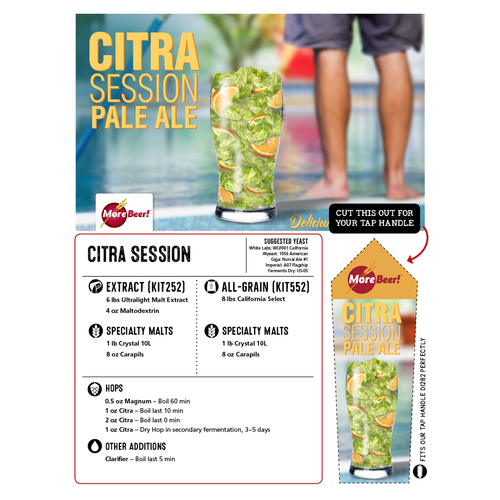


































![Craft A Brew - Safale BE-256 Yeast - Fermentis - Belgian Ale Dry Yeast - For Belgian & Strong Ales - Ingredients for Home Brewing - Beer Making Supplies - [3 Pack]](https://m.media-amazon.com/images/I/51bcKEwQmWL._SL500_.jpg)




















